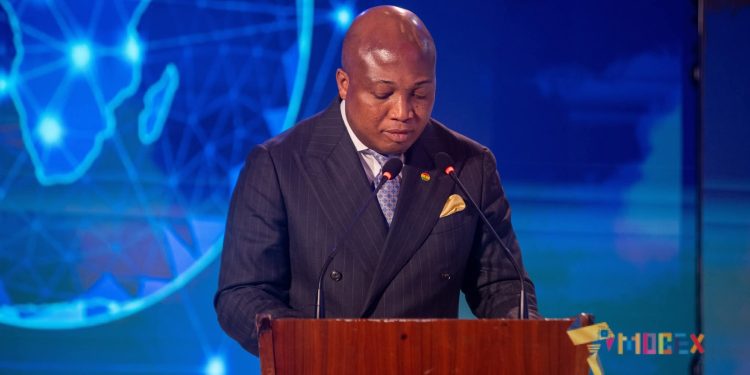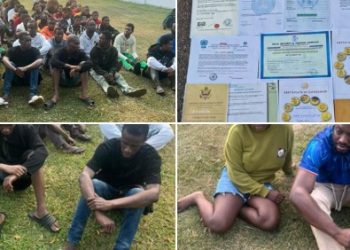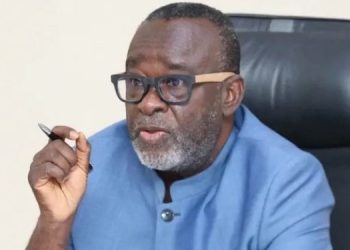The Minister of Foreign Affairs, Samuel Okudzeto Ablakwa, has declared that a renewed focus on digital sovereignty is fundamentally reshaping Africa’s foreign policy trajectory and international relations.
Speaking at the 10th MOBEX Africa Tech Expo & Innovation Conference in Accra, Okudzeto Ablakwa said Africa’s digital transformation as an inherently global and continental endeavour required robust cooperation among African nations.
The Minister asserted that in the 21st century, sovereignty extends beyond political borders and territorial integrity to encompass “digital autonomy, technological capacity, and the ability to shape our own digital futures.”
The core message was stark: when African nations lack control over their citizens’ data, their payment systems depend on foreign platforms, or their policies are dictated by external regulations, their sovereignty is undermined.
He also touched on the urgent need for Africa’s voice to be heard in global digital governance.
The Minister criticised the prevailing global digital governance regime, stating that “international standards for areas like artificial intelligence, data governance, and digital trade are too often set in centres like Geneva, Brussels, or Silicon Valley with minimal African input.”
To counter this, Ghana and its African partners are actively engaging in multilateral forums, including the UN, the AU, the WTO, and the ITU, to advocate for frameworks that genuinely serve the continent’s development.”
This advocacy, he indicated, focuses on several key areas, including establishing Technology Transfer Provisions that build local capacity; creating Digital Trade Frameworks to protect emerging African digital industries; instituting Data Governance Standards that balance national sovereignty with beneficial cross-border data flows; and promoting Development-oriented approaches that recognise Africa’s unique circumstances and needs.
The Minister stressed the fundamental role of digital connectivity in the success of the African Continental Free Trade Area (AfCFTA).
This fledgling $3.4 trillion economic bloc, he argued, “will succeed or fail based on digital connectivity,” making digital integration synonymous with trade integration.
On this point, he noted that the Foreign Ministry is treating regional digital initiatives as strategic diplomatic priorities, which will involve actively negotiating bilateral digital economy agreements to reduce barriers for cross-border services.
In addition to this is the need to harmonise regulatory structures through diplomacy to ensure scalable regional solutions, while simultaneously supporting projects such as the Pan-African Payment and Settlement System (PAPSS).
They stressed that all international partnerships must be “on equal terms, partnerships that build our capacity rather than creating new dependencies.”
The Minister concluded by calling for cooperation, urging international partners to engage with Africa “not as a market to exploit or a problem to solve, but as a partner with agency, priorities, and capacity.”
George Spencer Quaye, the CEO of MOBEX Africa, in his opening address, challenged the continent’s innovators and pioneers to change their role in the global digital ecosystem.
He argued that the long era of Africa being a mere consumer and testing ground for foreign technology must end.
He asserted, “For too long, Africa has been cast as a consumer of technologies designed elsewhere… That era is over.”
This “reset,” he clarified, is not an admission of failure but a strategic recalibration to accelerate momentum and claim ownership of a digital future built by, for, and owned by Africans.
The CEO emphasised that this movement is critical at a time when milestones, such as over 80% mobile penetration and the global rise of African-born Fintechs, prove Africa is ready to lead.
Highlighting the organisation’s decade of work in connecting young innovators and facilitating policy changes, Quaye promised that the next decade would be one of acceleration, built on the four pillars of innovation, infrastructure, inclusion and impact.
He said, “Over the next three days, the conference agenda aims to translate these pillars into tangible actions, with sessions dedicated to critical mechanisms of sovereignty, including identity systems, AI regulation, and digital payments.











